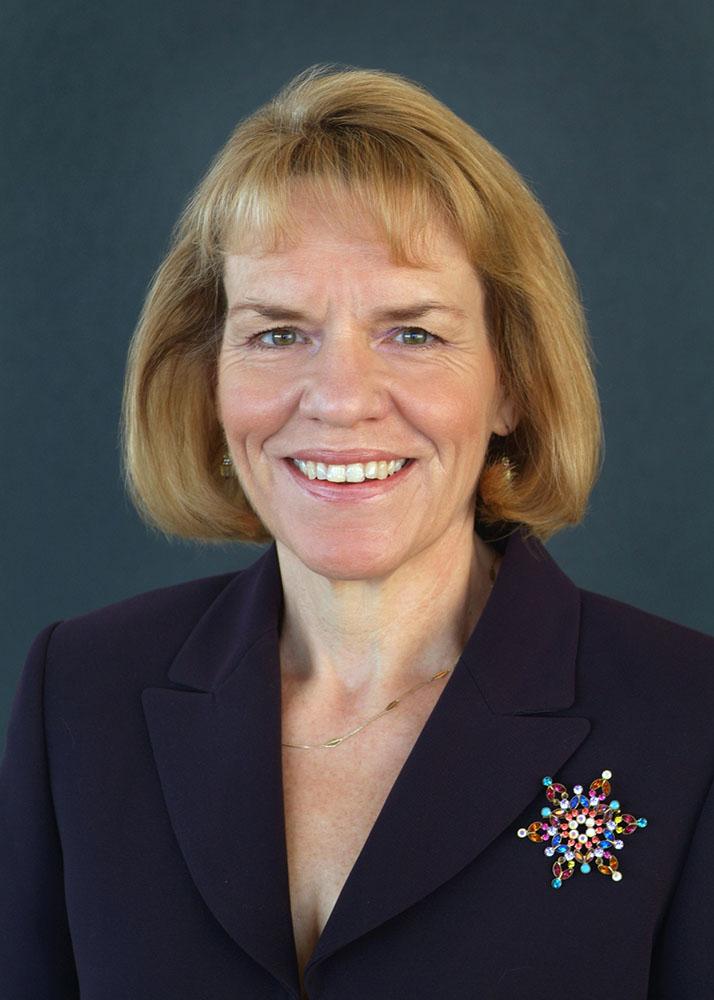
Credit: Huntsman Cancer Institute
SALT LAKE CITY – A new study published in the Journal of Clinical Oncology reports findings on Huntsman at Home™, a cancer hospital-at-home model operated by Huntsman Cancer Institute (HCI) at the University of Utah (U of U). The study analyzed aspects of Huntsman at Home acute care–meaning a level of care that is generally provided in an inpatient hospital setting.
In the 30 days after study entry, Huntsman at Home participants had 55% fewer hospitalizations, 45% fewer emergency department visits, and shorter hospital stays by one day. They also had 47% lower health care costs during the same 30-day period as compared with patients who did not participate in Huntsman at Home.
Kathleen Mooney, PhD, RN, Huntsman at Home research director and distinguished professor of nursing at the U of U, led the study, along with a team of nine other investigators. Their evaluation adds to the existing evidence of a reduction in costs and unplanned health care visits among Huntsman at Home participants.
Launched in 2018, Huntsman at Home was one of the first programs in the United States to provide acute cancer care at home. The service combines HCI research and clinical expertise for in-person care, remote patient and caregiver support, and acute-level clinical care provided by nurse practitioners. Huntsman at Home has a variety of home-based services that range from symptom management to acute medical, post-surgical, palliative, and end-of-life care. The publication examines factors related to acute care admissions to Huntsman at Home on health care utilization and costs.
“Acute cancer care in the home had not previously been evaluated,” says Mooney. “We sought to create a model that extended the compassionate care of HCI to provide services in a patient’s home that otherwise might require urgent or emergency care or a longer hospitalization to resolve. Yet we also knew it had to be sustainable and would require new insurance reimbursement models. Therefore, we evaluated our Huntsman at Home program on health care utilization and costs to determine the value added by the acute care model.”
The Huntsman at Home team is led by HCI nurse practitioners working in conjunction with HCI oncologists and is operated in partnership with Community Nursing Services, a home health and hospice agency that provides the program with registered nurses, social workers, and physical therapists. Huntsman at Home was initially offered to patients who lived within a 20-mile radius of HCI’s flagship cancer hospital in Salt Lake City.
“We found that emergency department visits and hospitalizations were approximately cut in half for patients who participated in Huntsman at Home,” Mooney says.
Mooney and her team plan further studies to evaluate other aspects of Huntsman at Home. They are currently examining patient and family caregiver satisfaction, and potential reductions in symptom severity and caregiving burden.
In alignment with HCI’s focus on meeting the needs of rural residents in its catchment area–a geographic region that spans 17% of the continental United States and includes all of Utah, Idaho, Montana, Nevada, and Wyoming–the team also plans to determine whether the model can improve care for patients who live far from a major medical center.
“Huntsman at Home is expanding to three rural counties in southeastern Utah, areas that require a two- to four-hour drive for patients to come to HCI,” Mooney says. This will be the first expansion of the Huntsman at Home service area. The HCI cancer care team will partner with local providers and community organizations to provide care through a combination of in-person, remote monitoring, and telehealth approaches. “This important expansion exemplifies HCI’s commitment to serve cancer patients where they live,” says Mooney.
###
Huntsman at Home is funded by HCI and Huntsman Cancer Foundation. The Huntsman at Home evaluation is supported by the Cambia Health Foundation. The rural expansion is supported by the Huntsman Foundation and the Rita & Alex Hillman Foundation. Other study authors include Karen Titchener, MSc; Benjamin Haaland, MS, PhD; Lorinda A. Coombs, PhD, MSN, FNP-BC, AOCNP; Brock O’Neil, MD; Richard Nelson, PhD; Jordan P. McPherson, PharmD; MSc, BCOP; Anne C. Kirchhoff, PhD; Anna C. Beck, MD; and John H. Ward, MD.
Huntsman Cancer Institute (HCI) at the University of Utah is the official cancer center of Utah. The cancer campus includes a state-of-the-art cancer specialty hospital as well as two buildings dedicated to cancer research. HCI treats patients with all forms of cancer and is recognized among the best cancer hospitals in the country by U.S. News and World Report. As the only National Cancer Institute (NCI)-Designated Comprehensive Cancer Center in the Mountain West, HCI serves the largest geographic region in the country, drawing patients from Utah, Nevada, Idaho, Wyoming, and Montana. More genes for inherited cancers have been discovered at HCI than at any other cancer center in the world, including genes responsible for hereditary breast, ovarian, colon, head, and neck cancers, along with melanoma. HCI manages the Utah Population Database, the largest genetic database in the world, with information on more than 11 million people linked to genealogies, health records, and vital statistics. HCI was founded by Jon M. and Karen Huntsman.
Media Contact
Carley Lehauli
[email protected]




